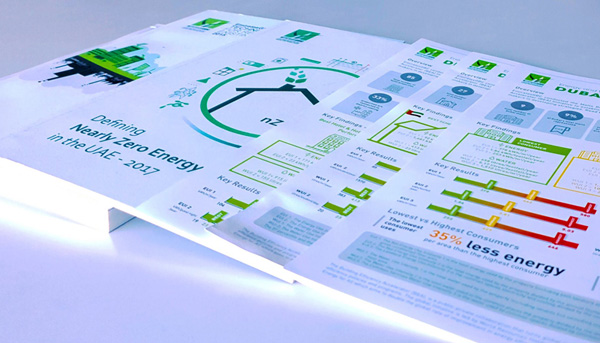EmiratesGBC, an independent forum aimed at conserving the environment by strengthening and promoting green building practices, marked the World Green Building Week held recently, with the launch of the first embodied carbon case study in the UAE fora shopping mall. The embodied carbon assessment study for My City Centre Masdar was conducted under the patronage of the Royal Danish Consulate General in Dubai, with Majid Al Futtaim as the NetZero Centre of Excellence Champion and Ramboll as Consultant.
Evaluating the impact of sustainable material procurement compared to legacy practices in terms of embodied carbon emissions, the study underlines that tangible reductions in embodied carbon emissions are possible with current building construction practices. The key is to ensure appropriate steps are taken at the earliest stages of the project.
The case study features My City Centre Masdar, which isMajid Al Futtaim’s first shopping mall in Abu Dhabi, and the25th in the region. The mall achieved an overall 14 per cent embodied carbon emissions savings only through sustainable material procurement. The changes in the procurement helped reduce embodied carbon dioxide emissions from approximately 22,180 tonnes to 19,120 tonnes, a reduction which is equivalent of 665cars driven in one year, according to U.S. EPA’s Greenhouse Gas Equivalencies Calculator.
The major and main groups of materials that have been considered in this embodied carbon assessment of the mall are concrete, steel, timber, insulation, glass, interior finishes such as paints, coatings, tiles and carpets, and ceramics, screed, and bricks. The embodied carbon assessment study revealed that when considering only the superstructure of the building, which comprises timber, concrete and steel, a reduction of 21 per cent in embodied carbon emissions can be achieved. Compared to ‘as-built scenario’ – using conventional practices in sourcing – emissions per square metre dropped to approximately 420kgCO2e/m2 compared to 535 kgCO2e/m2.
Addressing embodied carbon emissions should be considered as one of the key steps in the journey towards achieving net zero carbon buildings by 2050. It is crucial to establish an embodied carbon reduction target at the earliest stages of the project to ensure appropriate tracking of the targeted emissions reductions through a Carbon Management Process.
EmiratesGBC launched the Net Zero Centre of Excellence in 2018 as a think tank and accelerator to advance net zero carbon buildings in the UAE as part of its commitment to World Green Building Council’s global Advancing Net Zero Project. A signatory of the World Green Building Council’s Net Zero Carbon Building Commitment, Majid Al Futtaim,become a sponsor of EmiratesGBC’s Net Zero Centre of Excellence for the next two years, marking its commitment to the decarbonisation of the built environment.
His Excellency Ali Al Jassim, Chairman, EmiratesGBC,said: “This is a path-breaking study on embodied carbon emissions can be reduced through the early-stage adoption of sustainable building materials. With the UAE’s focus on positive climate change action and to achieve net zero carbon buildings by 2050, addressing embodied carbon during the construction stage will help achieve significant positive impact on the sustainable built environment. The findings of this study will support the work needed to achieve net zero embodied carbon for buildings, infrastructure, and renovations. Majid Al Futtaim, as a Net Zero Champion of our Net Zero Centre of Excellence, has set a role model for the industry through their commitment to addressing the challenge of embodied carbon emissions.”
Hanane El Ghiouane, Commercial Advisor & Head of Green Building & Urban Development, Royal Danish Consulate General in Dubai,added: “Denmark acknowledges the necessity of #racetozero for our planet to accommodate the needs of nine billion people by 2050, and part of the local climate diplomacy efforts include a Green Building & Urban Development alliance (GB&UD) with an open dialogue with EmiratesGBC for contribution to the inclusive and sustainable growth for all in the built environment. This exercise is happily supported by me and the Danish Diplomatic representation and hope it will bring embodied carbon and other inspiring local cases more upfront tomorrow.”
Dr. Ali Amiri, Head of Specialisms, Ramboll, said: “This is a great opportunity and exercise by Majid Al Futtaim and Danish Consulate to initiate the topic and trend of embodied carbon management and accounting within the region. This will encourage all major stakeholders to carry forward the practice for their built assets and help develop regional benchmarks to define embodied carbon reduction targets for future developments,”
Ibrahim Al-Zu’bi, Chief Sustainability Officer at Majid Al Futtaim Holding, said “At Majid Al Futtaim we realise that understanding the whole lifecycle impact of our buildings is becoming increasingly important and is a significant step towards our 2040 Net Positive Commitment. As our business continues to grow and expand across the region, decoupling our carbon emissions is a key priority. City Centre Masdar is built with sustainability at its core and we are proud of the results we achieved so far. City Centre Masdar is setting new standards for embodied carbon savings in the Middle East and we’re glad to contribute to the regional efforts to combat climate change by sharing our knowledge and experience.”
The study is authored by Dr. Ali Amiri, Head of Specialisms; Neshat Sakeena, Principal Consultant; Hunyum Murya, Senior Sustainability Consultant;Ishan Kalra, Senior Sustainability Consultant; and Teeba Aljabery, Graduate Sustainability Consultant at Ramboll, and prepared and reviewed by Jinan El Hajjar, Technical Analyst; Jason John, Acting Senior Engineer; and Dr. Waleed Yagoub, Director at EmiratesGBC. It can be downloaded at https://emiratesgbc.org/case-study-embodied-carbon/
EmiratesGBC aims to widen the scope of sustainability within the construction sector in the MENA region through events, own research, technical trainings, and programmes that empower the private and public sector entities, associations, consultants as well as green building and sustainability practitioners.













